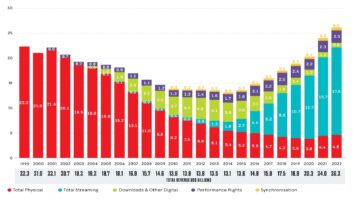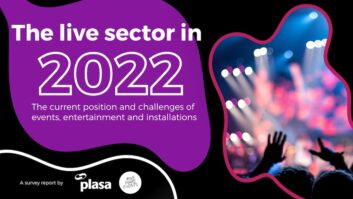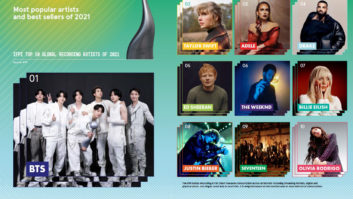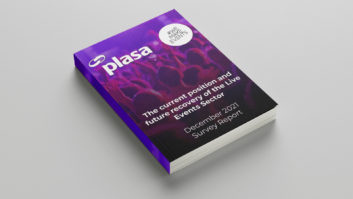
We got into the audio biz because we enjoy certain aspects of the job. It might have been the creative parts, the joys of problem solving or perhaps the glamor of working with famous and talented people and the opportunity to travel. Whatever it was that led us to this career, at times it feels more like fun than work.
advertisement
Whether by choice or, more commonly, out of necessity, much of that professional work is freelance. Salaried and benefitted gigs are few and far between these days in every sector of the economy, but freelancing has been the norm in our industry for a lot longer.
It doesn’t matter what segment of the trade we are in—live-sound, recording, game audio, sound for picture, composer, musician, teacher, gear designer, software coder—at some point each of us experiences an uncomfortable dip in our workload that has nothing to do with our talent, skill level or previous successes, and everything to do with the volatility of the entertainment business. As a result, one of the words we use everyday begins to take on extra layers of meaning, gaining such power that the mere idea of using it can paralyze us with fear.
That word is No.
People who are new to the music business, and folks with full-time jobs and more conventional careers (e.g., our friends, partners and parents), couldn’t imagine how such a common word could hold so much sway over a person. Yet experience has informed us that there can be a sudden dry spell at any minute. Add to that the effects of a serious economic downturn, and suddenly the idea of turning down any gig is completely off the table.
To avoid the discomfort of destitution, we often say Yes to offers that we know deep down inside should get a No. That is how we overextend ourselves and get into situations that are unhealthy in one way or another. Consequently, knowing when to use the N-word is one of the keys to long-term survival as a freelancer.
Get Yer No-No’s Out
There is a point in a child’s development—somewhere around the age of 2—when he or she becomes obsessed by the word no. “Are you hungry?” “No!” “Want to go to the movies and eat candy?” “No!” Caregivers intuit the real answer and understand that the little person is exploring his or her own autonomy within a larger developmental cycle. Once kids get that word out of their system, they move on to other stages of development.
Fast forward to adulthood, when the reality of living out of your car is, at times, all but an invoice away. The word no now becomes a strategy, and in many situations it’s not clear whether it’s the correct one or not. Pay-to-play situations get a no right off the bat. Problematic clients—the ones we know don’t pay on time or who make our life miserable—might not always get the negative response they deserve unless there are contingency plans.
In order to survive the ups and downs of the market, successful freelancers accumulate a portfolio of clients. In the early stages, some of the clients will be risky (e.g., potential non-payers and those who try to take advantage of us), but as we work our way up the food chain, we will run across honest and square-dealing folks who need our services. Do the job well and we foster a long-term relationship that leads to additional work, including recommendations to others.
The real test of mastery over the N-word comes when we have more work than we can comfortably handle, even if, as workaholics, we are used to an overloaded schedule. While we can now safely turn down the gigs we know we don’t want, it can still be hard to say no to the additional job requests that, perhaps, didn’t seem so bad (e.g., don’t require much time) at first. Yet, it is often these seemingly easy projects that take longer than anticipated and increase our stress level. Now we must juggle the extra hours the added gig requires along with the regular work we’ve already committed to.
And then there is the volunteer work, the stuff we do pro bono when we want to give a little back. These requests inevitably arrive when we are at our busiest: a colleague needs feedback; a student needs a recommendation letter; a preferred client needs help; a deadbeat client who has serious cachet (with possible high-quality connections) needs a favor. If we have already volunteered our time extensively, sending a negative reply to people we care about is among the most difficult things we’ll do in our career. But the thing that is worse than heeding our conscience and saying no to a colleague when we are overtaxed (and, thus, risking disappointment to both parties) is saying yes and not following through—or, more damaging, falling down on the real money gig.
One of the things that helps us continue to enjoy our work is being able to have enough time to do a good job on everything we commit to. And that is exactly where a virtuosic use of the word no is important. As the projects of our clients wax and wane, so too will our career until we take control of our own destiny by the careful and balanced use of this special word.







